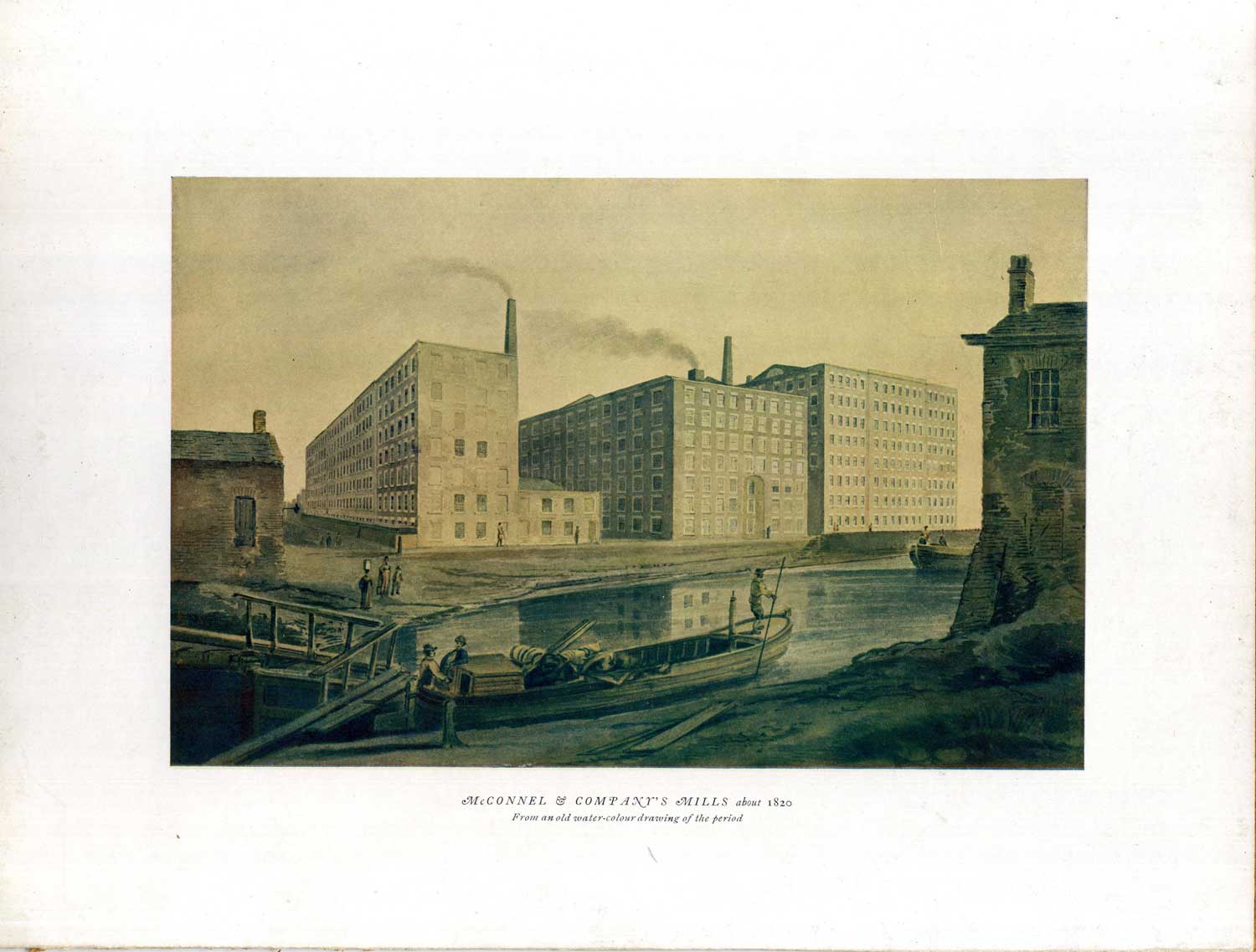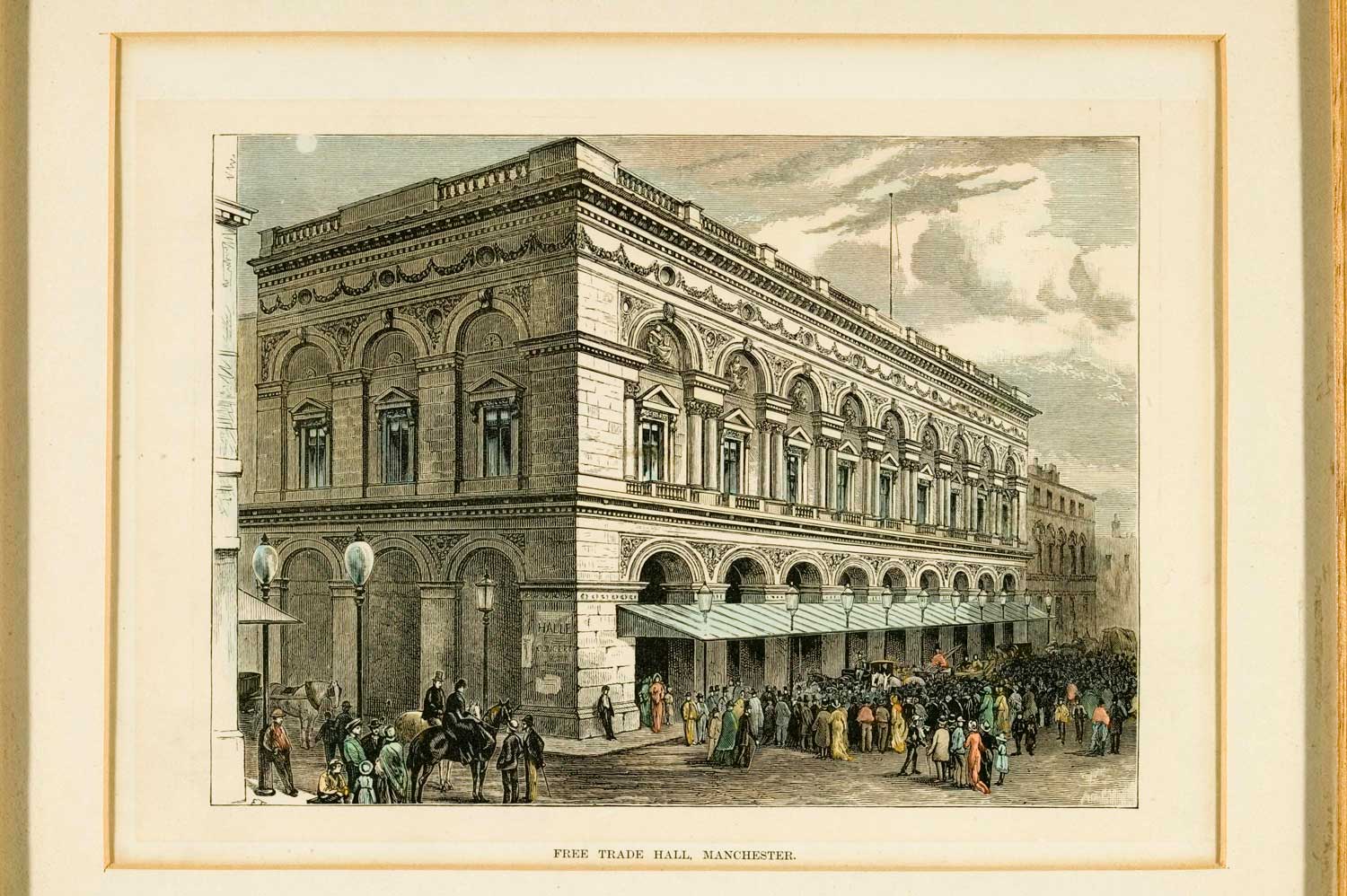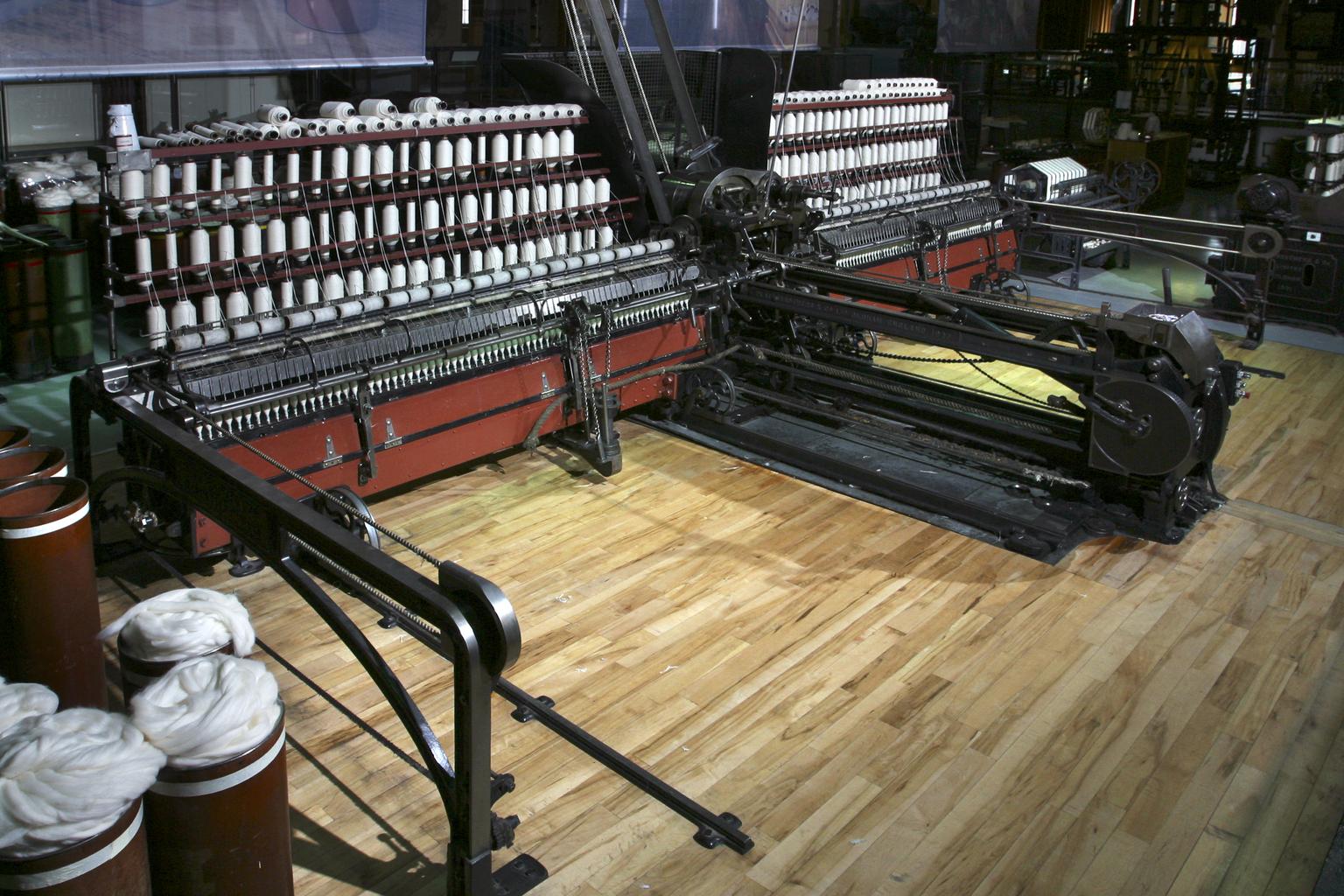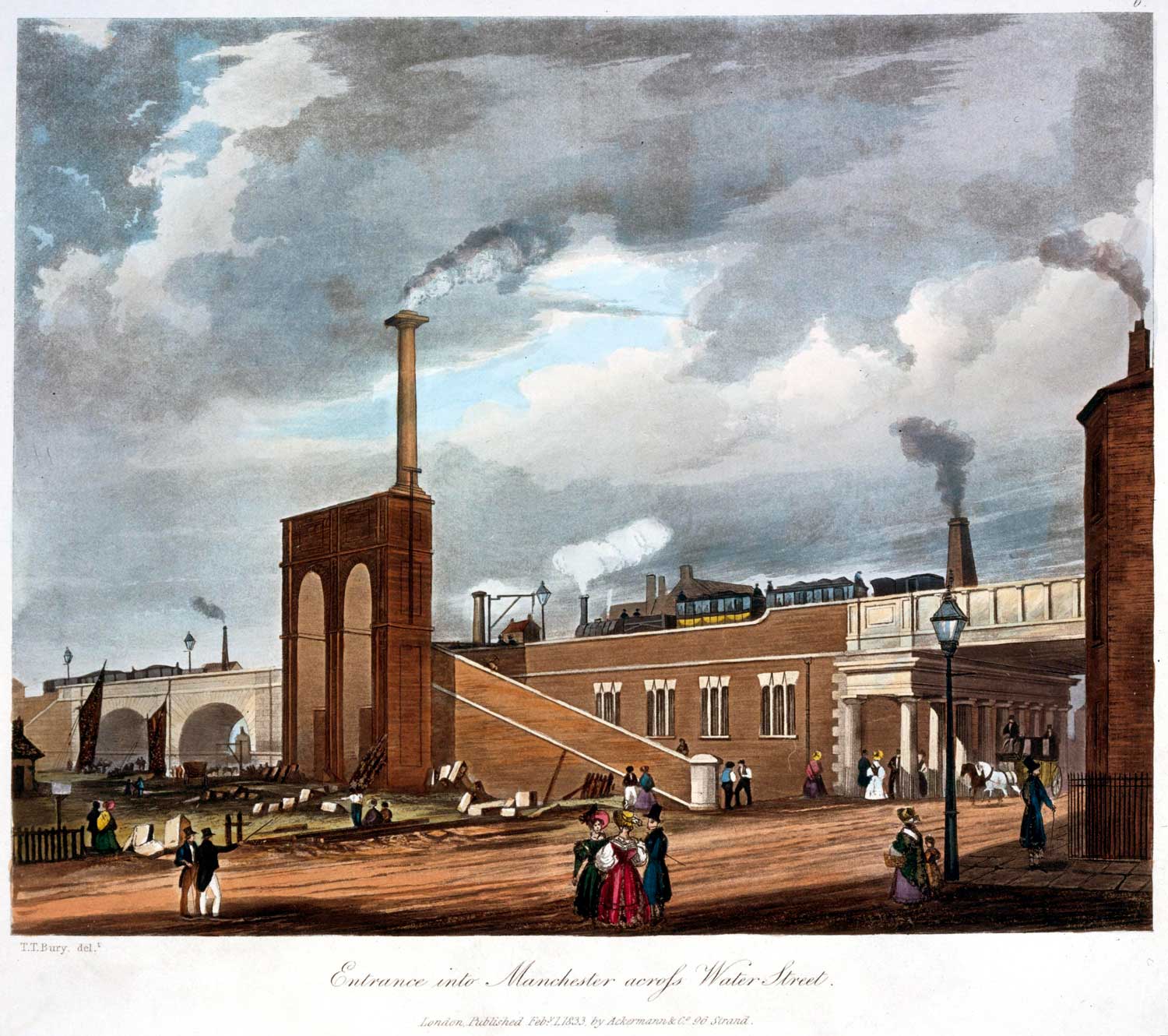Please note: The Global Threads public platform discussed below is now live. Find out more here.
Over the past six months, I’ve been working on a project called Global Threads, a public history collaboration between the Centre for the Study of the Legacies of British Slavery at University College London and the Science and Industry Museum here in Manchester.
Global Threads aims to draw out new and previously under-represented stories related to Manchester’s cotton industry, particularly those related to colonialism, enslavement and global movements of people and goods. The project feeds into work taking place across the Science Museum Group to reveal histories that have previously been under-represented or overlooked. The research will help inform the development of new gallery content here at the Science and Industry Museum, enabling the museum to tell more complete, complex and inclusive stories about Manchester’s textiles trade and its global impact and legacy.
Global Threads would not have been possible without our talented team of MA and recent postgraduate researchers, who gained valuable, paid heritage sector experience thanks to funding support from UCL’s Grand Challenges initiative. Most of our seven researchers are Manchester-based, and come from a range of academic backgrounds, including History and the History of Science, English Literature, Sociology and Social and Visual Anthropology, bringing a mix of skills and perspectives which greatly enriched the Global Threads project. Over the summer of 2021, our team came together to carry out original research into Manchester’s people, places, memorials and museum objects. We met regularly online to share research, workshop content and reflect on the stories that were being uncovered. Together they have authored a set of 10 case studies, each of which reveal stories about the connections forged by Manchester’s textiles industry between people and places across the world. Their work will soon be published on a new, publicly accessible online platform.
Ahead of this, as a taster of what is to come, here are a few highlights from the Science Museum Group’s collection that have inspired and illustrated some of the stories the Global Threads team have been researching.

Credit: Science Museum Group Collection
This is an illustration of McConnel and Kennedy’s cotton factories in Ancoats, Manchester, created in about 1820 and held in the archives at the Science and Industry Museum. The picture gives an impression of the huge, multi-storey steam powered mills that dominated Manchester’s landscape from the early 19th century as it grew into the world’s first industrial city. McConnel and Kennedy was one of Manchester’s largest textiles manufacturers, making their fortune from cotton spinning.
Much of the raw cotton processed in their mills was produced by enslaved people forced to work on plantations in the southern United States. The parallel and dramatic expansions of the US cotton system based on enslaved labour and Manchester and Lancashire’s textiles industry in the late 18th and early 19th centuries were deeply linked.
Some of the Global Threads researchers have focussed on connections between manufacturers in Manchester and enslaved people on cotton plantations in the US south, bringing the experiences of enslaved people to the fore. Megan Bridgeland, one of the project’s researchers said:
‘I was very excited to take part in this project, and have the opportunity to elevate the voices and experiences of people who have rarely been heard throughout history. My case studies focus on cooking and crafting within enslaved communities. These themes have allowed me to explore stories that are rich with the daily experiences and resistances of enslaved people. I hope that by highlighting ‘everyday’ items, such as clothes and recipes, my studies will give readers in Manchester an engaging insight into the lives of enslaved people in the Caribbean and US, and our relationship with them.’

Credit: Science Museum Group Collection
This drawing of Manchester’s Free Trade Hall from about 1860, also held in the Science and Industry Museum’s archive, shows crowds gathering outside its doors. The Free Trade Hall was a major centre of 19th century political life in the city. Inside, the people of Manchester held meetings and discussions on a wide range of topics, including the abolition of slavery. As a city built on cotton, Manchester was deeply engaged with this issue.
Some of the Global Threads researchers have explored the theme of Manchester and abolition, through the stories of African American abolitionist campaigners who came to Manchester to build support for the cause back home, as well as the lives of Mancunians and their attitudes to the abolition of slavery. Serena Robinson, who researched African American abolitionist campaigner Sarah Parker Remond’s visit to Manchester on the eve of the US Civil War said:
‘Doing this research allowed me to explore gender and race through a historical lens via Sarah Parker Remond and her visit to Manchester in 1859. I hope that this research highlights the power of Black women throughout history.’
Researcher Cameron Christie also explored the story of abolition in Manchester:
‘I initially found the idea of working as a researcher for Global Threads quite daunting because I hadn’t studied history academically since finishing my A Levels. But eventually, I began to develop the idea of focussing on poetry written by out-of-work cotton mill operatives during the Lancashire Cotton Famine. This made sense because I could use the skills I’d learnt from my English Literature degree to begin to characterise the working class experiences expressed in the poetry. I’ve definitely learnt so much about this really interesting period of history and feel much more confident applying for researcher roles in the future.’

Photographed on display in the Textiles gallery.
Credit: Science Museum Group Collection
This textile machine, a spinning mule, is on display in the Science and Industry Museum’s Textiles Gallery. Manufactured by Platt Brothers in 1927, the machine is regularly demonstrated by the museum’s Learning team, bringing to life the sights and sounds of Lancashire’s textile mills. The mule was made and used in Oldham, but some of the cotton yarn made on its spindles would have been exported around the world. This inspired one of the Global Threads team to research the connections between Lancashire’s textiles industry and South Asia. Sibia Akhtar said:
‘As a researcher on the Global Threads public history project, it has been very rewarding to work on case studies that depict Manchester’s global connections to the cotton industry. I have been exploring Oldham’s cotton production and its global impact as well as the Khadi movement in the 1920s, which demonstrated the resilience of textile goods. These stories are often untold so I enjoyed working on this project to explore the voices of those who were crucial to Manchester’s cotton industry and beyond.’

Credit: Science Museum Group Collection
This print shows a steam locomotive pulling out of Liverpool Road Station, the Manchester terminus of the Liverpool and Manchester Railway. Opening in 1830, it was the world’s first inter-urban railway designed to carry both passengers and goods. The original 1830 Station and 1830 Warehouse now form part of the Science and Industry Museum. A major driver for the construction of the railway was to speed up the movement of raw cotton and finished cloth between Manchester’s mills and Liverpool’s port. Some of the railway’s backers were people who made their money trading in slave-grown cotton, or from the ownership of enslaved people.
One of the Global Threads team has been inspired by this story to explore the connections between Manchester and the transatlantic slave trade, through the story of wealthy Manchester philanthropist and plantation owner, Eleanora Atherton, who lived on Quay Street, just a stone’s throw from Liverpool Road Station. Researcher Will Douch said:
‘The two case studies I was involved in were on Eleanora Atherton and Frederick Douglass. I found the project really interesting as studying the lives of these two individuals and their connections to Manchester revealed how local histories can still include such a large diversity of characters. Their different experiences highlight the different connections a city like Manchester has to Britain’s colonial past and hopefully the project helps illustrate those connections to others.’
This is just a flavour of the wide range of research that the Global Threads team have been working on to reveal more about Manchester’s global cotton connections. We are very much looking forward to sharing more. Keep an eye out for further details about the launch of the Global Threads public platform.
Keep an eye out for further details about the launch of the Global Threads public platform—sign up for our newsletter or follow us on Twitter at @sim_manchester to find out more. You can also follow Centre for the Study of the Legacies of British Slavery at @LBS_at_UCL and UCL Grand Challenges at @GrandChallenges.